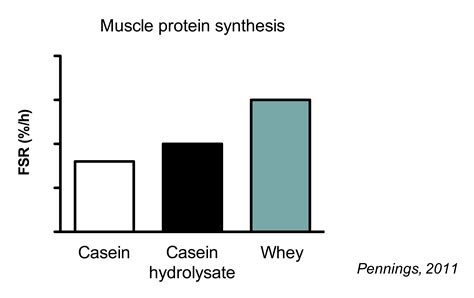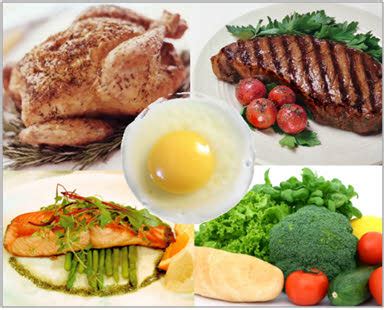What’s the best daily protein intake for men aiming for peak muscle & recovery?

Achieving peak muscle growth and efficient recovery isn’t just about hitting the gym; it’s fundamentally about what you consume, with protein taking center stage. For men committed to building a strong physique, understanding the precise role and optimal intake of this vital macronutrient is key to unlocking their full potential.
The Cornerstone of Muscle: Why Protein Matters So Much
Protein is often called the building block of life, and for good reason. Composed of amino acids, it’s essential for countless bodily functions, but none are perhaps as celebrated by athletes as its role in muscle protein synthesis (MPS). When you train, you create microscopic tears in your muscle fibers. Protein provides the raw materials—amino acids—to repair these tears, making your muscles stronger and larger in the process. Adequate protein intake is not just about growth; it’s equally critical for minimizing muscle breakdown, improving recovery times, and supporting overall athletic performance.

Establishing Your Daily Protein Target: A Science-Backed Approach
While general dietary guidelines exist, for men actively pursuing muscle and recovery goals, a more targeted approach is necessary. Research consistently suggests that an intake significantly higher than the standard recommendation is beneficial. The consensus among sports nutritionists and researchers typically falls within the range of 1.6 to 2.2 grams of protein per kilogram of body weight per day (or approximately 0.7 to 1.0 grams per pound of body weight).
- For Muscle Growth (Hypertrophy): Aim for the higher end of the spectrum, especially during periods of intense training or caloric surplus.
- For Fat Loss (Caloric Deficit): Maintaining a higher protein intake (often 2.0-2.5 g/kg) is crucial to preserve lean muscle mass while in a deficit.
- Factors to Consider: Your age, training intensity, body composition, and overall caloric intake will influence your exact needs. Younger individuals and those with higher training volumes may benefit from slightly more.

Beyond Quantity: The Importance of Quality and Timing
It’s not just how much protein you eat, but also the quality and when you consume it. High-quality proteins are ‘complete proteins,’ meaning they contain all nine essential amino acids necessary for muscle repair and growth. Excellent sources include:
- Animal Sources: Lean meats (chicken, beef, turkey), fish (salmon, tuna), eggs, dairy (milk, Greek yogurt, cottage cheese).
- Plant-Based Sources: Soy products (tofu, tempeh), quinoa, lentils, beans, chickpeas, and protein powders derived from peas or rice (often combined for complete amino acid profiles).
Distributing your protein intake throughout the day, aiming for 20-40 grams per meal or snack, has been shown to optimize muscle protein synthesis. While the ‘anabolic window’ post-workout isn’t as narrow as once thought, consuming protein within a few hours after training can still be beneficial for recovery.

Practical Strategies for Meeting High Protein Needs
Hitting 150-200+ grams of protein daily can seem daunting, but with smart planning, it’s entirely achievable:
- Prioritize Protein at Every Meal: Make lean protein the centerpiece of your breakfast, lunch, and dinner.
- Strategic Snacking: Incorporate protein-rich snacks like Greek yogurt, cottage cheese, hard-boiled eggs, or a handful of almonds between meals.
- Utilize Protein Supplements: Whey, casein, or plant-based protein powders can be convenient and effective ways to boost your intake, especially post-workout or when whole food options are limited.
- Cook in Bulk: Prepare large batches of chicken breast, ground turkey, or fish to easily add to meals throughout the week.

Listen to Your Body and Stay Consistent
While these guidelines provide a strong framework, individual responses can vary. Pay attention to how your body feels, your recovery speed, and your progress in the gym. Adjust your protein intake as needed based on your training phase, current body weight, and overall dietary goals. Consistency is crucial; meeting your protein targets day in and day out will yield the best results for sustained muscle growth and optimal recovery.
By making high-quality protein a cornerstone of your diet, strategically distributing it, and consistently hitting your targets, men can effectively support their journey towards peak muscle development and faster, more efficient recovery, ultimately maximizing their fitness potential.









